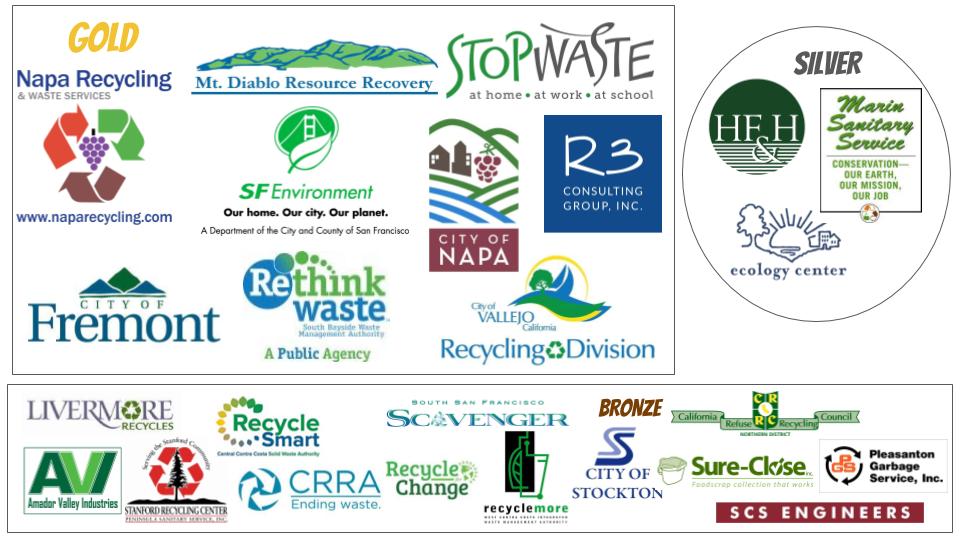NORTHERN CALIFORNIA RECYCLING ASSOCIATION
BOARD MEETING – THURS May 17, 2018
Location: John Moore’s Office, 1970 Broadway St, Oakland, CA 94612
Food served at 6 pm; meeting begins at 6:30 pm.
Open to the public – all welcome to attend. Please RSVP to the NCRA Office if you wish to attend. Coming late? Let the office know so someone can be prepared to come down to let you in; the doorperson leaves at 6pm.


